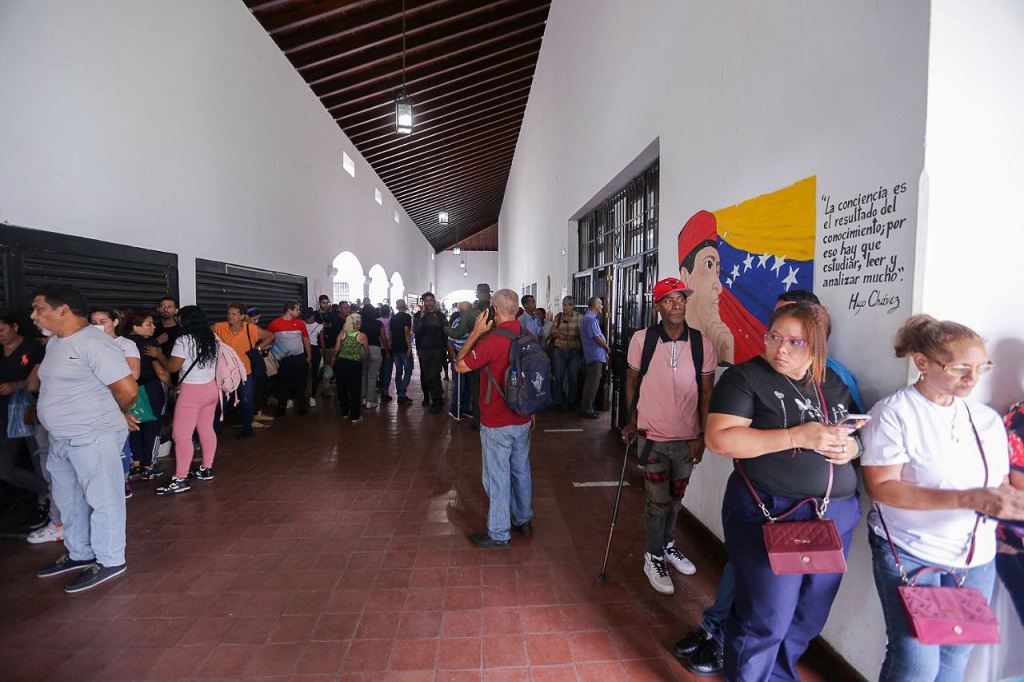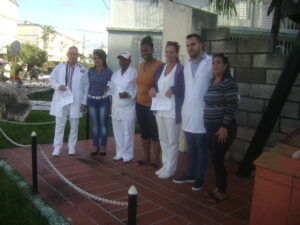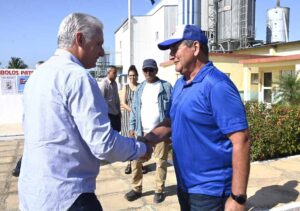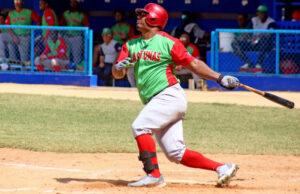Venezuela held a mock election that highlighted the civic-mindedness and participatory democracy of the people, in a day that lasted three hours longer than the National Electoral Council (CNE) had stipulated.
What happened the day before in the 1,174 polling stations and in the 3,066 polling stations distributed in the 335 municipalities of the country’s 24 states was for many a prelude to what could happen on Sunday 28 July with the presidential vote.

According to the head of the CNE, Elvis Amoroso, everything worked perfectly and it was thanks to the participation of the people, who took to the streets very early before the polling centres opened at 08:00 local time, and given the massive turnout, it went on until after 16:00.
All the rectors of the Electoral Power agreed to extend the opening hours until 19:00 due to the large number of people queuing at the polling stations to exercise their right to vote, the senior official said.
Amoroso congratulated all the people who made «an extraordinary civic day again, of deepening democracy».
In this regard, the prevailing tranquility throughout the nation with the participation of the Bolivarian National Armed Forces and its Plan República and other security forces was relevant, as there were no reports of any act that threatened the security of the process and the voters.
The first vice-president of the United Socialist Party of Venezuela (PSUV), Diosdado Cabello, affirmed that the call is always for civic-mindedness, given the behaviour of those groups that have never believed in elections and then if they do not like the results, they have to go out and exercise violence.
That is why we are calling for calm, as we are doing, that the people «are going out in peace, they are voting where they have to vote and they are fulfilling their duty to the homeland, to the country and to the future», he stressed.
Cabello said that it is an example of civic-mindedness that «the people of Venezuela always give every time there is a vote».
In the worst circumstances, he remarked, «we have always complied with the Constitution and the law».
For the head of the National Command of the Venezuela Our 21st Century Campaign, Jorge Rodríguez, the mock election demonstrated the full force of the deployment of the electoral machinery of the revolutionary organisations.
He said that this team seeks the unity of all the political and social forces of the Bolivarian Revolution and not just the machinery of the United Socialist Party of Venezuela, in reference to the system articulated and put into practice of the 1X10X7.
Rodríguez stressed that this is also expressed in the communal councils, the activists of the missions and large missions, the defenders of the sovereignty of the homeland through the militias, the parties of the Gran Polo Patriótico, the social movements, young people and the elderly.
He emphasised that the Venezuelan population has great confidence in the proposals they have been developing and assured that «this is a machine that for the first time promotes the unification of all forces around a goal that they will achieve on Sunday 28 July».
The people turned this day «into a true democratic fiesta», in which they wanted to participate and teach a lesson to those who have attacked the Revolution, he said.
He stressed that this exercise is a lesson to the whole world «of the strength of democracy in Venezuela».
The vice-president of the CNE, Carlos Quintero, summarised the scope of the simulation, which in addition to taking place in peace, with massive participation and the presence of international observers, was highly effective and efficient throughout the system put into practice, which will be the same as the one used on 28 July.
Quintero acknowledged that three objectives formulated by the Electoral Power for the exercise were met the day before: to encourage, without a doubt, the participation of the electorate, which gave a foretaste of what will be «the great electoral party» at the end of the month.
He also contributed to the verification of the technical and other processes of scrutiny, authentication and determining the voting time, which he set at between 38 and 42 seconds, and considered it a «satisfactory average».
It also served to test the national tallying centres, the means of communication to transmit the results, the data transmission network and the security mechanisms that protect the vote, as well as to examine all the protocols in the field of those who cooperate with the CNE.
The latter, he considered, demonstrated coordination and compliance with the protocols they have been working on.
Yesterday, a total of 21 million 392,464 voters were called to participate in the electoral rehearsal.




